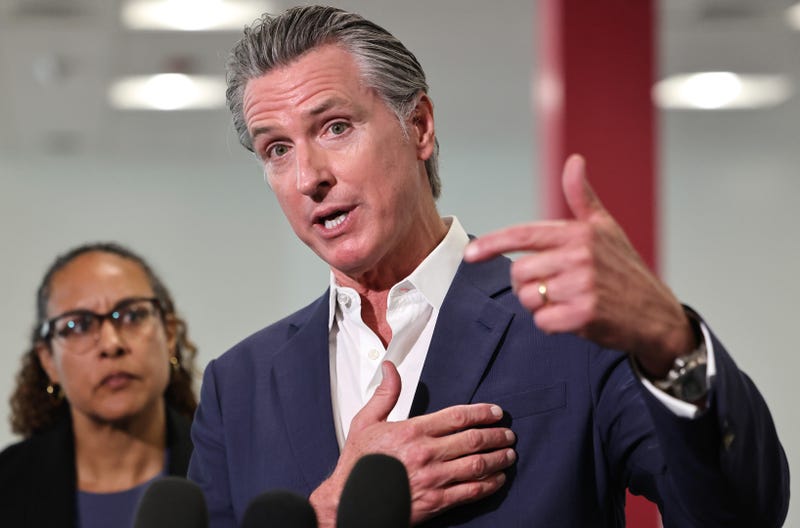
Despite objections from Los Angeles city leaders who deemed it an infringement on local development control, Gov. Gavin Newsom Friday signed state legislation allowing more rapid -- and more dense -- housing projects near major public transit stops.
Want to get caught up on what's happening in SoCal every weekday afternoon? Click to follow The L.A. Local wherever you get podcasts.
Senate Bill 79, introduced earlier this year by Sen. Scott Wiener, D- San Francisco, overrides local zoning standards, allowing taller and more dense housing near specific transit stops in eight counties across the state -- Los Angeles, Orange, San Diego, Santa Clara, Alameda, Sacramento, San Francisco and San Mateo.
The bill was originally intended to be enacted statewide, but it was narrowed through a series of amendments as it wound through the Legislature, limiting it to the eight counties and applying only to major transit stops -- such as subway and light rail stations and heavily used stops on major bus lines.
"All Californians deserve an affordable place to live -- close to jobs, schools, and opportunity," Newsom said in a statement announcing his decision to sign the bill. "Housing near transit means shorter commutes, lower costs, and more time with family. When we invest in housing, we're investing in people -- their chance to build a future, raise a family, and be part of a community."
Wiener called Newsom's signature a "historic step" toward addressing the state's affordable-housing crisis.
"In California, we talk a lot about where we don't want to build homes, but rarely about where we do -- until now," he said in a statement. "It's been a long road to tackle these decades-old problems, but thanks to Governor Newsom's leadership, today marks a new day for affordable housing and public transportation in California."
The legislation will allow for multi-family developments as high as nine stories directly adjacent to major transit hubs, with the height restrictions scaling downward to five stories depending on distance from the stations. It also streamlines the permitting process for projects within a half- mile of major public transit stops and allows local transit agencies such as Metro to develop greater density on properties they own.
In August, a divided Los Angeles City Council approved a resolution urging Newsom to veto the bill, calling it an infringement on cities' rights to control development in their communities.
"We need more housing, and it needs to be housing that people can actually afford," Councilwoman Traci Park, representing the Eleventh Council District that encompasses Westside communities such as Pacific Palisades, said during the August council discussion. "But that doesn't mean that we can be reckless about where and how we build a one-size-fits-all mandate from Sacramento."
Mayor Karen Bass sent Newsom a letter in September urging him to reject the bill, unless it included an exemption for cities with an approved Housing Element plan for affordable-housing development -- such as Los Angeles. Bass told the governor cities need to create more housing, but they need to do it "in a way that does not erode local control, diminish community input on planning and zoning and disproportionately impact low-resource neighborhoods."
Not all Los Angeles city officials opposed the legislation. Council members Eunisses Hernandez, Curren Price, Nithya Raman, Marqueece Harris-Dawson and Hugo Soto-Martinez voted against the opposing resolution in August.
Soto-Martinez said some council members simply oppose higher-density developments in their districts, despite the dire need for more housing at more affordable prices.
"If you want the solution to these issues, the homelessness, permanent supportive housing sites, then build them in your district and don't say vulnerable communities will be affected when you are stopping projects yourself," he said at the time.
Follow KNX News 97.1 FM
Twitter | Facebook | Instagram | TikTok
